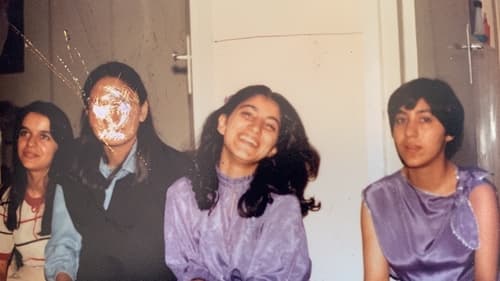
Cinematography
Farah, an Iranian woman, is forced to migrate to her private planet to be free. She buys other people’s memories in form of Super 8 films and records and archives her own to create an alternative history of Iran.

Editor
Farah, an Iranian woman, is forced to migrate to her private planet to be free. She buys other people’s memories in form of Super 8 films and records and archives her own to create an alternative history of Iran.

Director
Farah, an Iranian woman, is forced to migrate to her private planet to be free. She buys other people’s memories in form of Super 8 films and records and archives her own to create an alternative history of Iran.

Editor
Pegah talks about Gholam, a man who’s not like her father, mother, uncles, or aunts, even though he’s always present at family gatherings. Gholam films these everyday scenes with his own camera. At the time, Pegah can’t imagine what the purpose of these films might be, but she’s happy to pose before the lens of this family friend, who she’s certainly very fond of.

Editor
"Mother married a photo of Father," says director Firouzeh Khosrovani in the opening of this deeply personal documentary. She's not speaking metaphorically though. Her mother Tayi literally married a portrait of Hossein in Teheran -he was in Switzerland studying radiology and was unable to travel back to his homeland for the wedding. The event illustrates the abyss that still exists in their marriage: Hossein is a secular progressive and Tayi a devout, traditional Muslim.

Editor
This film reviews the lives of 6 former residents of Sitir Street (Ghavam Al-Satna) and their memories of living on this street. While reviewing these memories, the importance and historical-biological value of this street is shown in the memory of the people of Tehran and Iran.

Director
In this absorbing film, seven independent female Iranian documentary makers take us into their personal and professional world, in an Iran that continues to be punctured by political, social and economic crises. What becomes clear over seven autobiographical chapters, is that choosing to become a documentary maker in Iran is a brave decision, often placing your liberty in danger. These women are driven by the need to document their world, and the forces that continue to restrict their movement and freedom. Whether it is making a film about department stores in Tehran featuring mannequins with severed heads and breasts, or the women singers they used to love as children, who have been banned from radio and TV since the revolution, or the huge swell of hope that comes with each election, these directors provide a rare and incisive view inside contemporary Iran, a country they continue to love, even as they will it to change.

Editor
It is 1978. Tehran is in bloodshed. The young Bahman falls in love with Leila, the sister of his martyred friend. Unrest in the streets, unrest in the hearts.

Writer
It is 1978. Tehran is in bloodshed. The young Bahman falls in love with Leila, the sister of his martyred friend. Unrest in the streets, unrest in the hearts.

Director
It is 1978. Tehran is in bloodshed. The young Bahman falls in love with Leila, the sister of his martyred friend. Unrest in the streets, unrest in the hearts.

Writer
The documentary "Iran in Announcements", a research documentary about announcements in Iran, is from the early years of the announcement of Iran to the arrival of the Islamic Revolution.

Director
The documentary "Iran in Announcements", a research documentary about announcements in Iran, is from the early years of the announcement of Iran to the arrival of the Islamic Revolution.










